More On: Billionaire Tax
8 of the Most Notorious Presidential Tax Scandals in History
13 of the Most Absurd Tax Deductions Ever
Biden's Billionaire Tax Would Affect Everyone
Many things in politics these days seem unusual, yet tax problems have dogged countless presidents over the years.
Although we may be compensated or receive an affiliate commission if you buy something through our links, every editorial product is chosen independently. As of the time of publication, the ratings and pricing are correct, and the items are in stock.
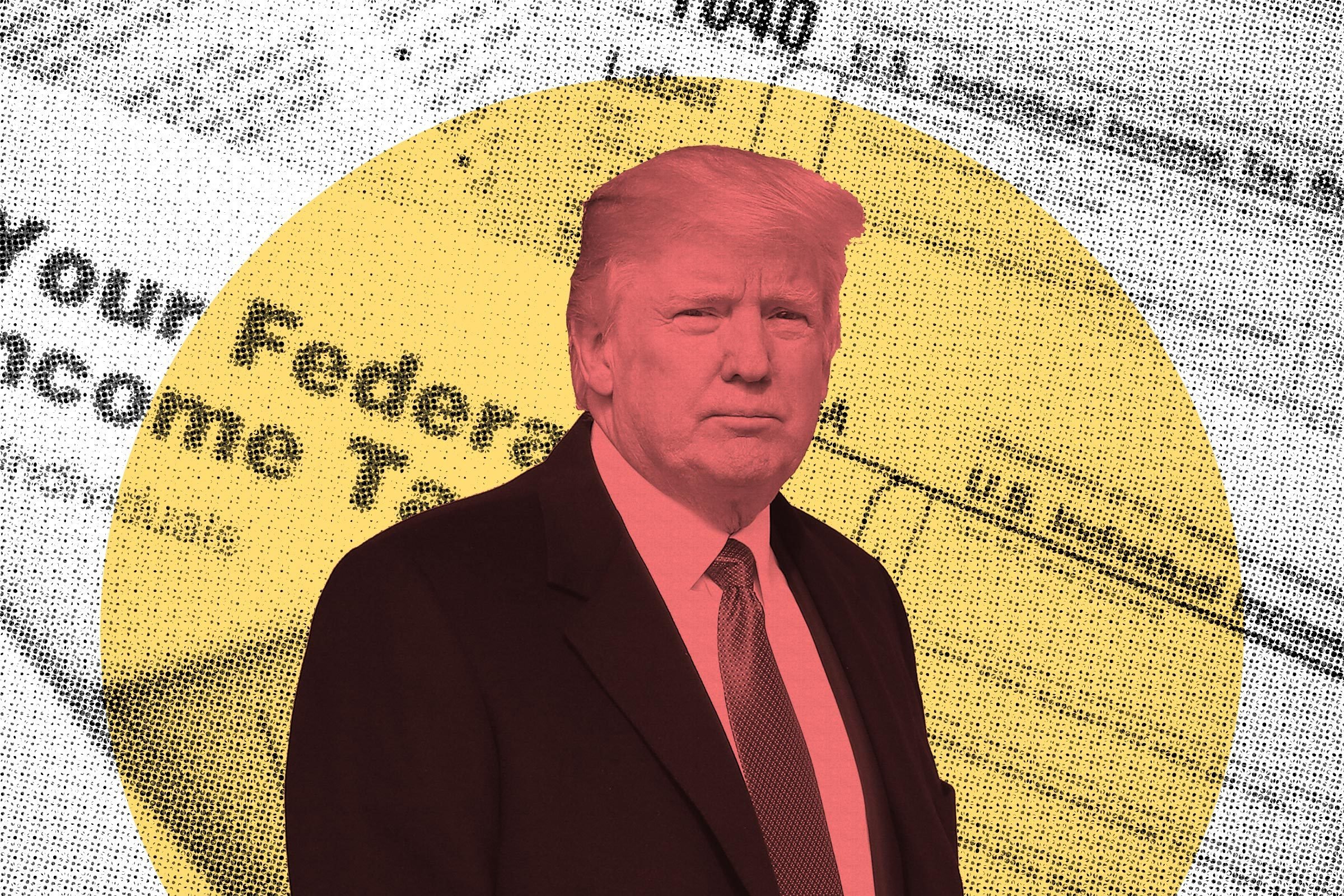 Getty Images (2), rd.com
Getty Images (2), rd.comA tradition of tax returns
Despite the fact that it is not required by law, every US president since Richard Nixon has made at least some of his tax returns public. Until the present president, that is. In January 2016, then-candidate Donald Trump told Chuck Todd of Meet the Press that he wanted to release his tax returns, saying, "We're working on it now." As you know, I have a lot of returns, and I have everything approved and looking great, so we'll be working on that in the near future."That hasn't happened after more than four years. As a result, on July 9, 2020, the Supreme Court upheld a New York prosecutor's request for Trump's tax returns. These tax returns are unlikely to be made public before the November 2020 election, so it's uncertain whether they'll have direct political ramifications. Though this particular circumstance may be unique, it isn't the first time a president has been the subject of tax criticism. Here are eight of the most notorious presidential tax controversies in history.
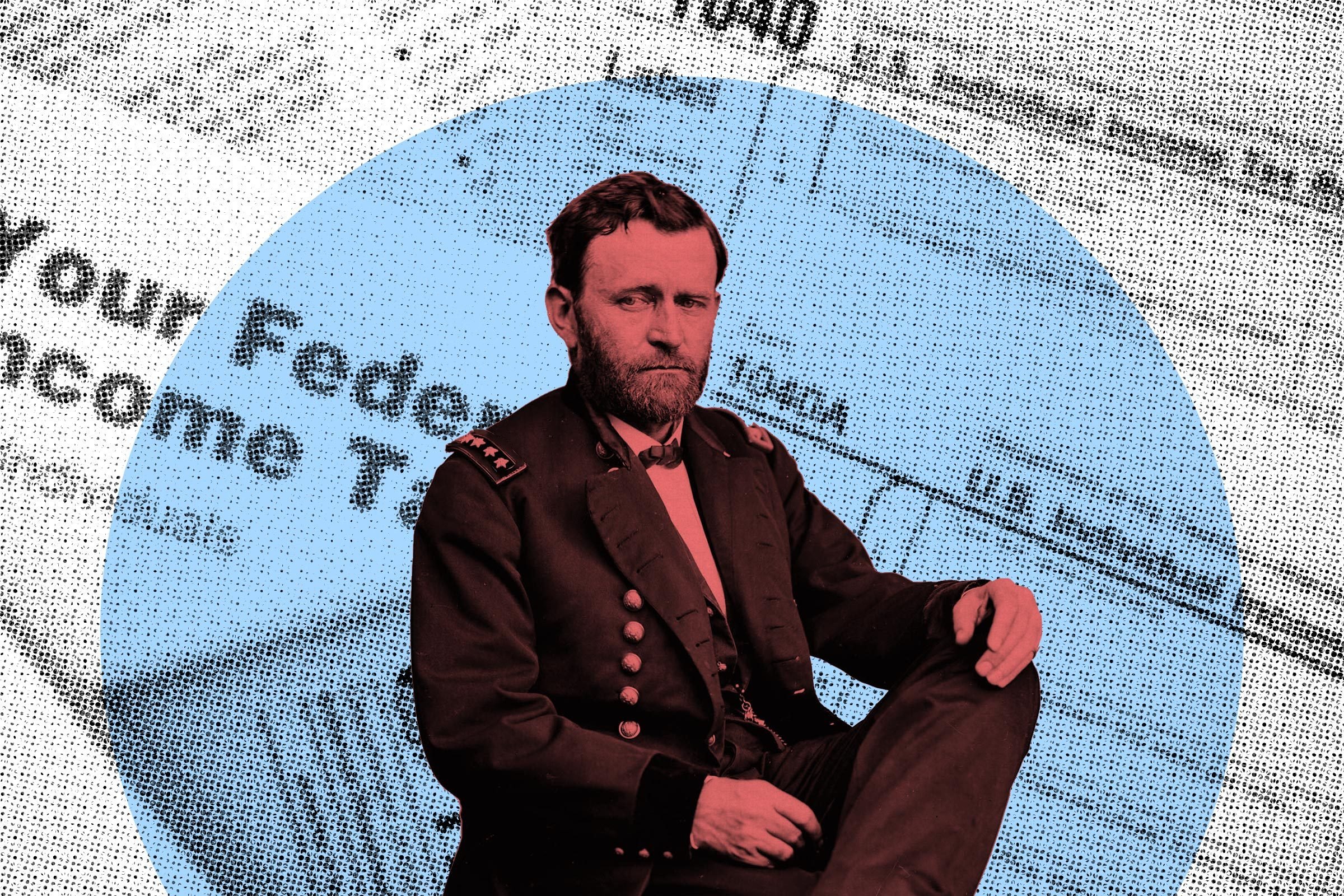 Getty Images (2), rd.com
Getty Images (2), rd.comUlysses S. Grant
When Ulysses S. Grant was elected president after the Civil War, he intended to do things his way in Washington, which included appointing people he trusted and respected to his Cabinet rather than merely handing out jobs to Republican leaders who voted for him. Though a great idea in theory, Joan Waugh, PhD, a UCLA history professor, believes that Grant wasn't always the best judge of character.This became clear in 1875, when Grant's Treasury Secretary Benjamin Bristow, with the help of certain federal investigators, began investigating Midwestern distillers who were not paying excise tax. Bristow presented evidence to Grant for what became known as the Whiskey Ring, and Grant instructed him to prosecute the fraud. Grant's personal secretary, Orville Babcock, has known about the Whiskey Ring for some time, according to the investigation. Babcock was placed on trial, with Grant testifying in his defense, but he was found not guilty. Grant was not participating in the swindling, but having someone in his personal circle involved in the crimes didn't seem good.
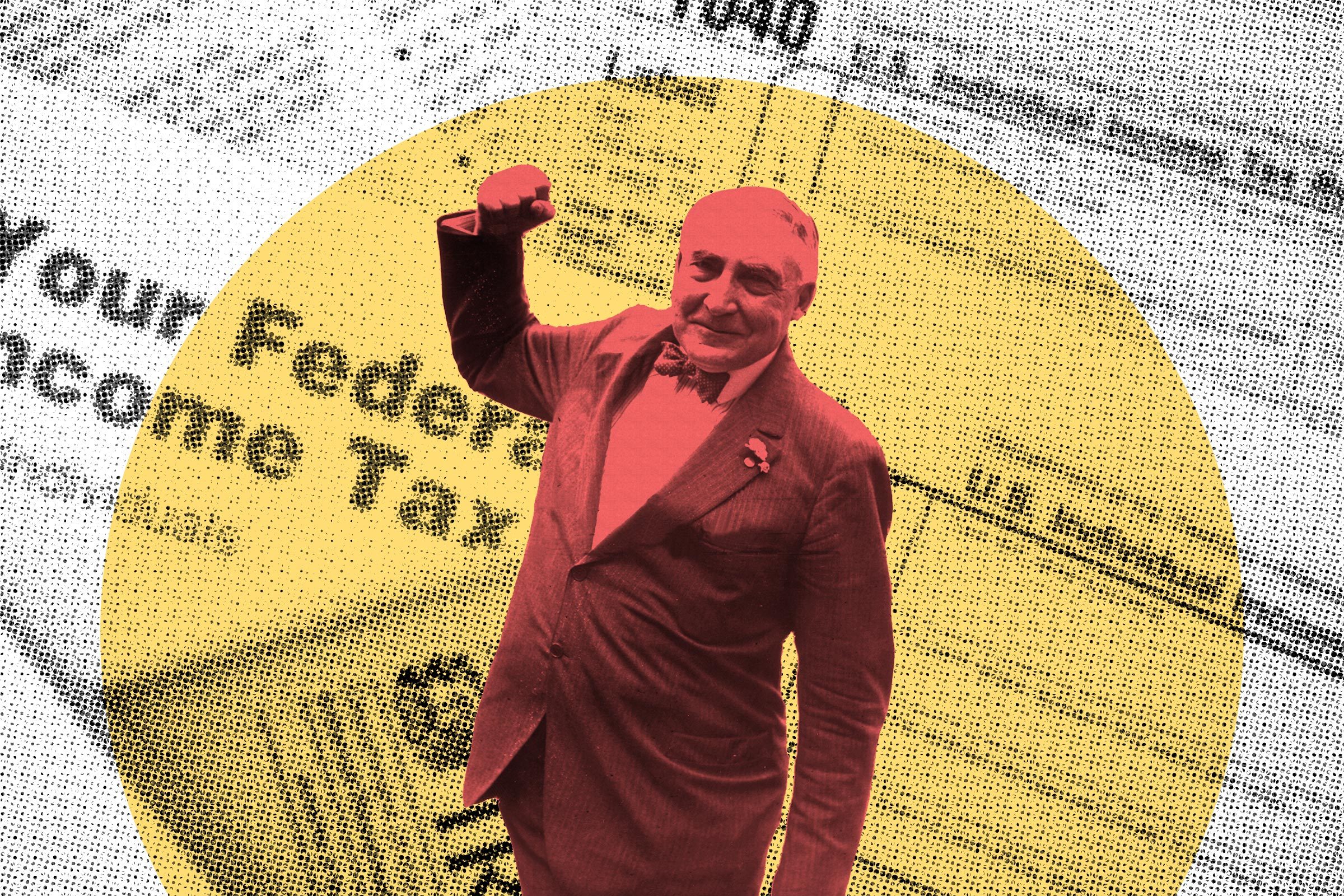 Getty Images (2), rd.com
Getty Images (2), rd.comWarren G. Harding
You may recall reading about the Teapot Dome incident in history class, but did you realize that the circumstances back then wasn't all that dissimilar to our present presidential tax issue? Warren G. Harding was president during the Roaring Twenties. Ciara Torres-Spelliscy outlines what transpired in an op-ed for the Brennan Center for Justice: "On April 7, 1922, Secretary of the Interior Albert B. Fall signed a no-bid contract with a private corporation to lease federal oil fields in Teapot Dome, Wyoming. The scandal's congressional probe focused on the issue, "How did Interior Secretary Albert Fall get so wealthy so quickly?" Fall was found guilty of accepting a $100,000 bribe." Then, amid the controversy, Harding's attorney general, Harry M. Daugherty, came under fire for not conducting a comprehensive investigation into Fall.The Teapot Dome scandal eventually led to major federal reforms, including the Federal Corrupt Practices Act of 1925 and the Revenue Act of 1924, which "gave the chairs of the House Ways and Means and Senate Finance Committees the power to demand tax returns from the IRS," according to Torres-Spelliscy. Despite the fact that Harding died in 1923 before these were implemented, he is nevertheless linked to the scandal involving a member of his Cabinet.
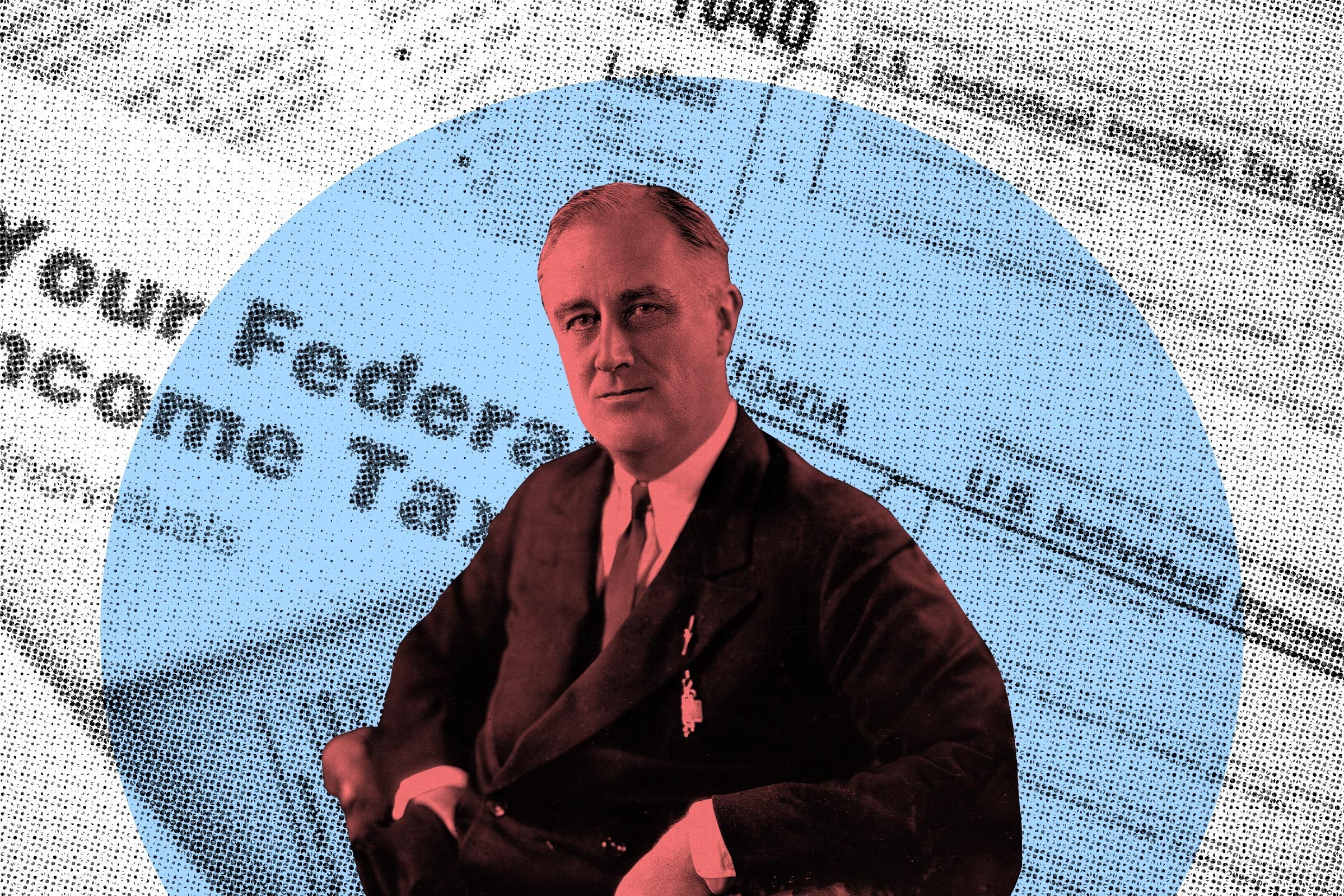 Getty Images (2), rd.com
Getty Images (2), rd.comFranklin Delano Roosevelt
It was not traditional for presidents to release their personal tax returns when Franklin Delano Roosevelt took office. That was fortunate for FDR, because he wasn't the best at paying taxes. Roosevelt was in the habit of lowering his own tax payments at various stages, both before and after he was elected president, according to the National Archive."During his first time in office, FDR asserted frequently that he was exempt from the high tax rates on personal income that Congress had enacted—and Roosevelt had approved—in the revenue bills of 1934 and 1935," argues Tax Analysts' Joseph Thorndike. Roosevelt protested in a series of letters to internal revenue officials that he could not be taxed at the high rates imposed on wealthy taxpayers in the mid-1930s. According to Roosevelt, Article II, section 1 of the Constitution prohibits any reduction in the president's remuneration during his tenure in office. The president's salary could not be affected by the new rates adopted in 1934 and 1935 because they effectively lowered that compensation." FDR eventually began paying his taxes at the correct rate in 1936.
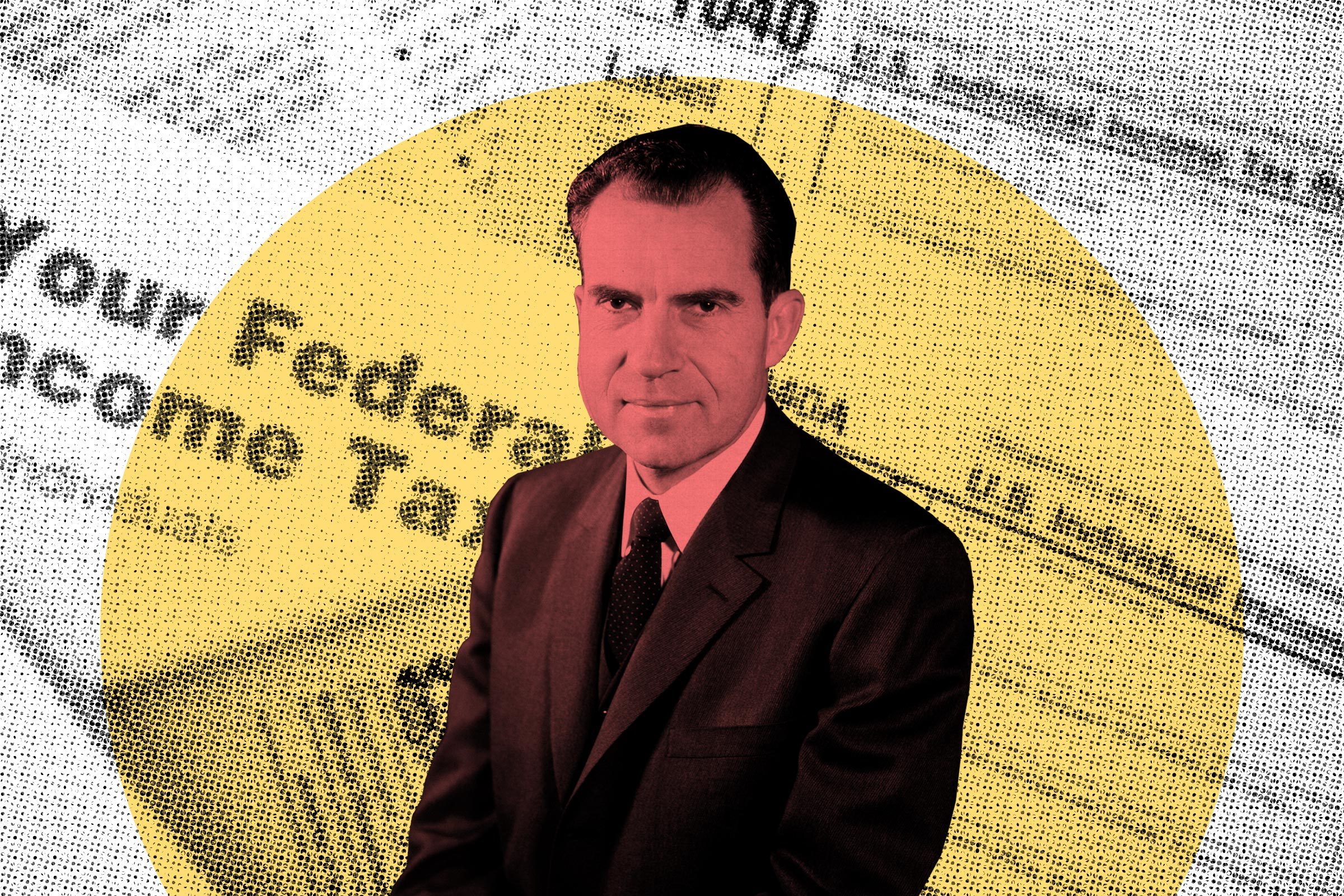 Getty Images (2), rd.com
Getty Images (2), rd.comRichard Nixon
"I am not a crook," you'd probably say if you had to choose one phrase from Richard Nixon. He was, in fact, talking to a scenario about his taxes. The year was 1973, and the Watergate affair had captivated the nation. The IRS was asked to reveal Nixon's tax documents as part of the probe, but the agency refused. However, despite earning more over $200,000, one IRS employee leaked Nixon's tax paperwork, revealing that he paid only $792.81 in federal income taxes in 1970 and $878.03 in 1971. Nixon was eventually charged with over $400,000 in unpaid taxes and resigned less than a year later.
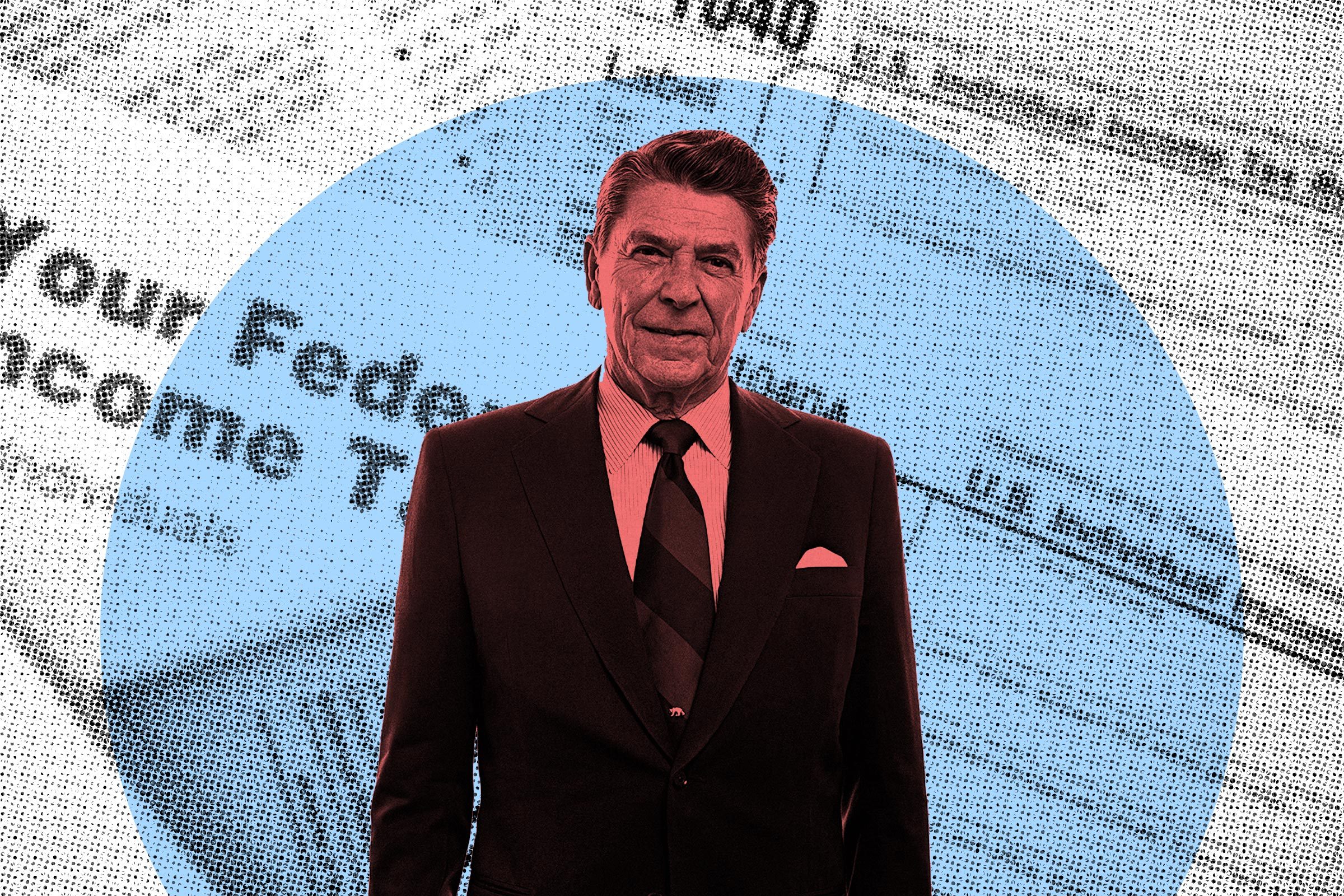 Getty Images (2), rd.com
Getty Images (2), rd.comRonald Reagan
When Ronald Reagan's 1981 tax returns were disclosed, it revealed that he was paying taxes at a 40% effective rate. From Nixon through Obama, this was the highest effective tax rate of any recent president. But don't worry about the actor-turned-financial politician's situation: he took full advantage of his own tax reduction. In 1987, for example, his tax rate was reduced to 25%. His earnings that year included his presidential salary ($200,000 per year plus a $50,000 expense account), $1,312 in residuals from his acting career, and $281 in royalties from book sales.
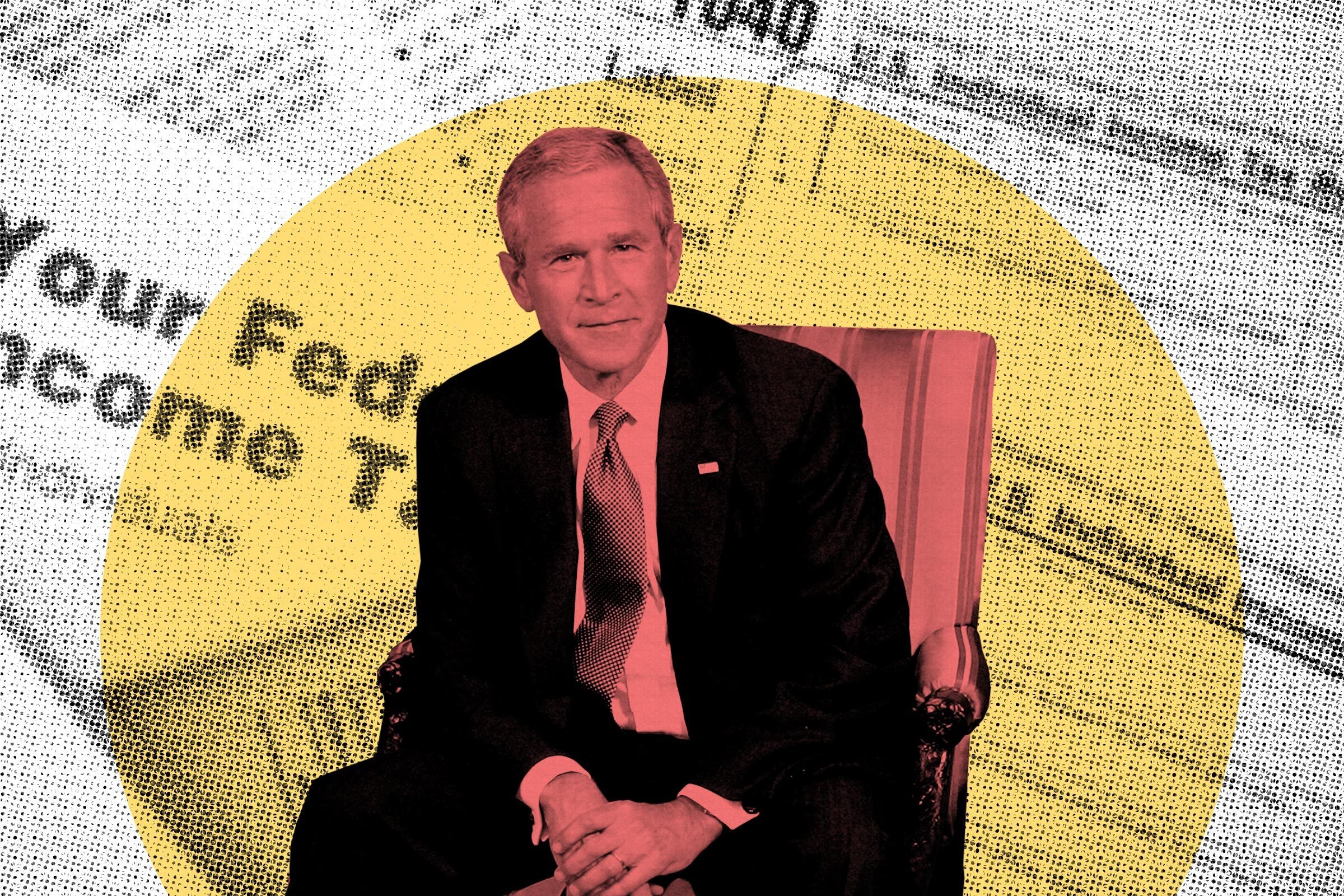 Getty Images (2), rd.com
Getty Images (2), rd.comGeorge W. Bush
George W. Bush dealt with a lot of people during his two terms as president. But one in particular, a lobbyist named Jack Abramoff, was particularly troublesome. Abramoff donated more than $100,000 for Bush's campaign and gained almost 200 contacts in the administration during the president's first ten months in office. Members of Abramoff's team met with Attorney General John Ashcroft as well as Vice President Dick Cheney's policy advisers. These ties are thought to have helped Abramoff gain meetings with high-ranking Interior Department officials in order to boost his lobbying efforts on behalf of Native American tribes and the casinos they run. Six tribes paid Abramoff more than $80 million in lobbying fees between 2000 and 2003, and that's just one illustration of his corruption.Meanwhile, Bush attempted to distance himself from Abramoff as much as possible, including claiming that he had never met the lobbyist, despite images showing the two together. Abramoff pleaded guilty to counts of mail fraud, conspiracy to bribe public officials, and tax evasion in 2006 and was sentenced to 43 months in federal prison before being released. Abramoff, on the other hand, has not characterized Bush's presidency or legacy.
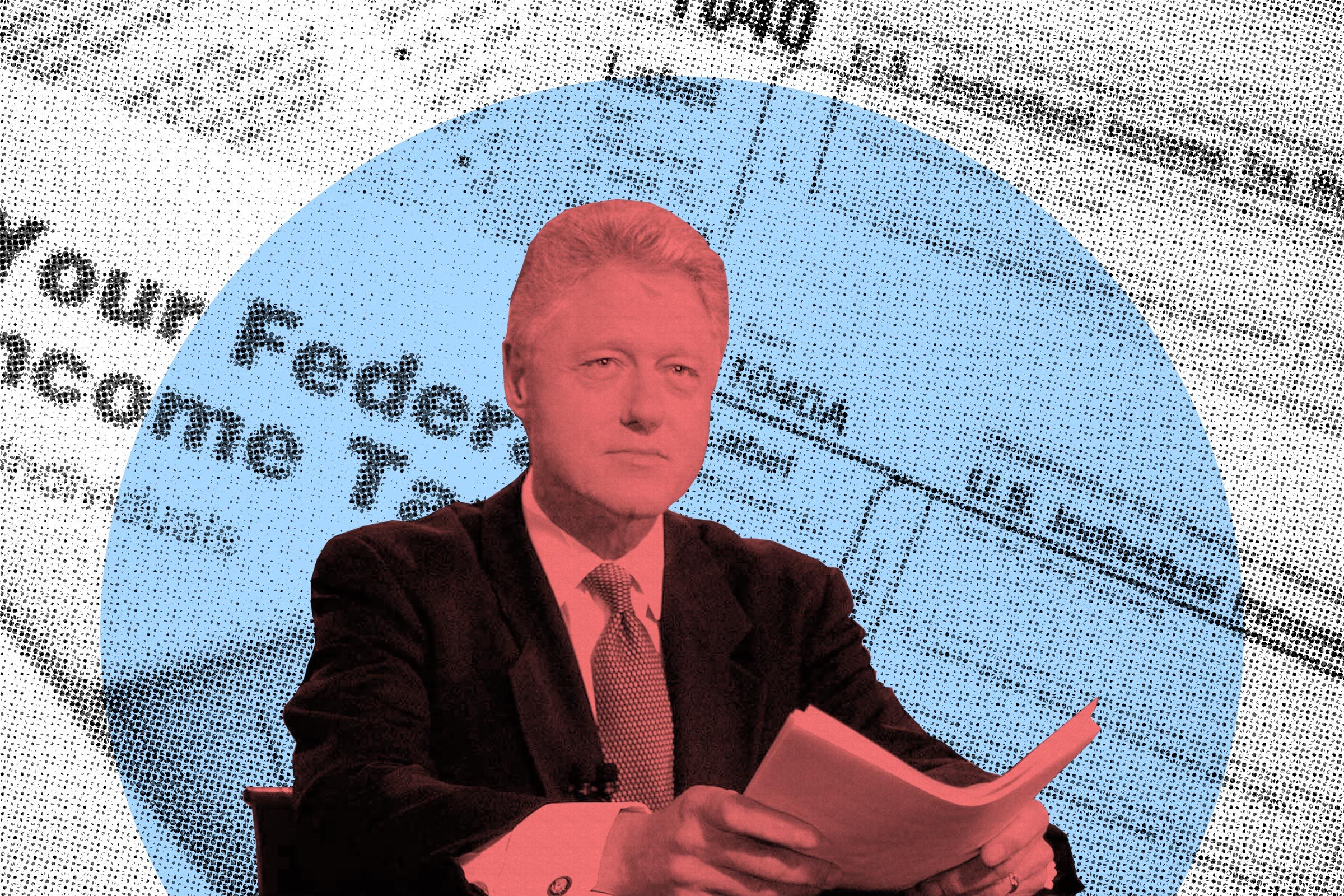 Getty Images (2), rd.com
Getty Images (2), rd.comBill Clinton
Despite the fact that Bill Clinton's presidency is more closely connected with a distinct issue, there were several instances of underpayment of taxes for earnings related to the Clintons' Whitewater real estate investment. Clinton vowed to compensate the IRS for unlawful personal tax deductions on interest payments made by the Whitewater Development Corporation when running in 1992. The Clintons owed $4,900, but it took them 21 months to deliver a payment. Whitewater was in the headlines all the time by 1994, with some speculating that the real estate company was implicated in other illicit operations. Despite several investigations, the Clintons were never found guilty of breaching the law after releasing several years of tax returns. In the end, Whitewater had little impact on Bill Clinton's presidency or legacy, nor on Hillary Clinton's 2016 presidential campaign.
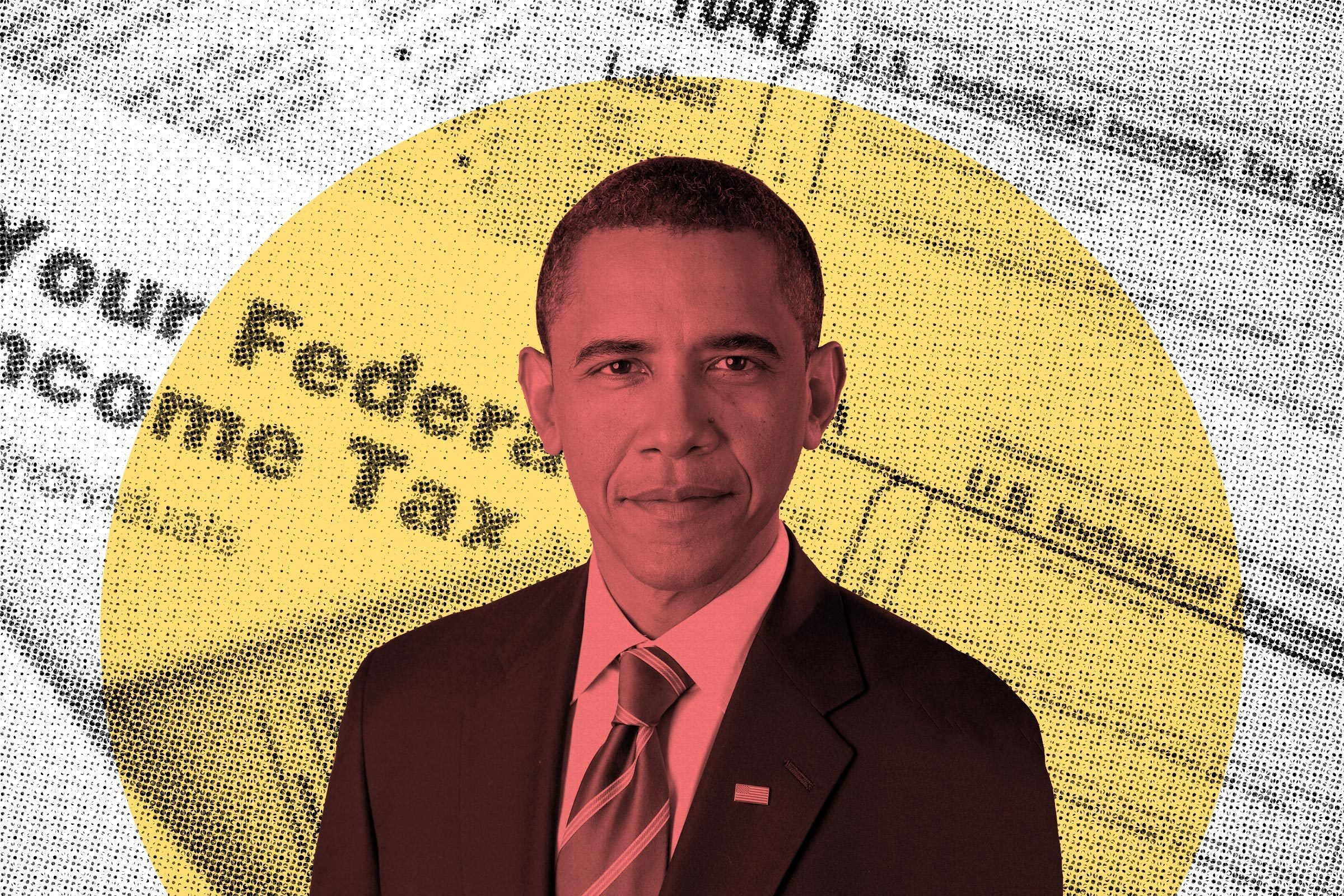 Getty Images (2), rd.com
Getty Images (2), rd.comBarack Obama
When Barack Obama's tax returns were revealed, it was evident that he and Michelle began making larger donations to charitable groups once he began his presidential campaign and as he generated more money from the sales of two books. In reality, the rerelease of Dreams From My Father brought him $1.2 million in 2005, and his second book, The Audacity of Hope, brought him $551,000 in 2006.
Though most people think of donations as a good thing for a presidential candidate, that wasn't the case with Obama. The Obamas gave $27,500 to the Trinity United Church of Christ in Chicago in 2005 and 2006, according to his tax records. Obama was a long-time member of the church, and its pastor, Rev. Jeremiah A. Wright Jr., served as his spiritual guide. Unfortunately for Obama, Wright became well-known for something other than his relationship with the future president: a series of fiery sermons that were taken on camera and circulated widely in the media. Obama initially distanced himself from Wright before leaving the church in 2008.
=====
Related Video:













